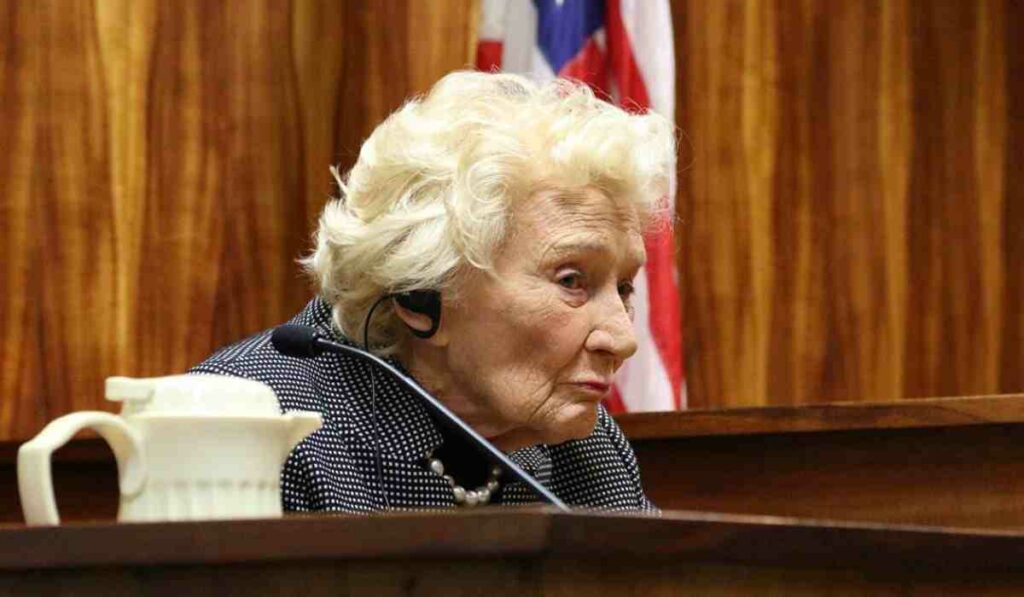The royal, known as Kekua to her friends, is one of the last links to the royal family and is celebrated for her philanthropic support of traditional Hawaiian culture. The heiress died peacefully at home with her husband in Honolulu on Sunday, according to a statement released by Iolani Palace, the historic home of the royal family — and America’s only royal residence. “Abigail will be remembered for her love of Hawaii and its people,” said her wife, Veronica Gail Kavananakoa. “I will miss her with all my heart.”
Abigail Kavanaugh was born in Honolulu in 1926 and later attended school in Shanghai and California. Her great fortune, estimated at $215m (£175m) and held in trust, comes from her great-grandfather James Campbell, an Irish businessman who owned sugarcane plantations. His daughter married Prince David Kawananakoa, third in line to the throne of the Kingdom of Hawaii when the royal family was overthrown by American businessmen in 1893.
At the time, the role of US nationals in the rebellion was controversial, and President Grover Cleveland described their involvement in the overthrow of the Hawaiian monarchy as “embarrassing”. After the prince’s death in 1908, his widow “Hanai” adopted their grandson through traditional Hawaiian tradition, strengthening Abigail’s claim to the unofficial title of princess. Although some genealogists claim that Princess Kawananakoa has the strongest royal ties to Hawaii, a separate branch of the former royal family claims that Princess Oana Ka’helelani is the rightful head of the modern dynasty.

Mrs. Kawananakoa herself acknowledged in a 2021 interview with Honolulu magazine that the monarchy would survive, with her cousin Edward Kawananakoa likely to rule before her, based on the rules of succession. “But I will be the power behind the throne, there’s no question about that,” she joked in the interview. Among her acts of philanthropy, Mrs. Kawananakoa funded scholarships for Native Hawaiians and contributed to the maintenance of Iolani Palace, now a museum.
The Abigail KK Kawananako Foundation, set up in 2001, set aside $100m (£81m) of her fortune to support Native Hawaiian causes after her death, according to the Honolulu Star-Advertiser. Friends also admired her sense of mischief, and she was known to test religious leaders for offering large sums of money — sometimes in exchange for outrageous demands. Jim Wright, her personal lawyer since 1998, recalled that she once agreed to a request for $100,000 (£81,281) from the Catholic Diocese of Honolulu.
She agreed to make the payment — but only if she could get a photo of Pope Benedict XVI accepting her check. Hawaii’s governor, Josh Green, was among those paying tribute to Ms. Kawananakoa, saying he and his wife were “deeply saddened” by the loss. “Abigail bore the weight of her position with dignity and humility, enriching the lives of everyone she touched, and like so many Alis before her, she left behind a legacy that was forever dedicated to her people.
” He ordered that flags be flown at half-mast on Sunday in her honor. However, Hawaiian activist Walter Ritte told local media that her impact on local culture was minimal. “We don’t fully understand what her role is and how she can help us,” he noted. But the leaders of Hawaii’s members of the US Legislature, Senator Jarrett Keohokalole and Representative Daniel Holt praised her generosity and contributions, which they said greatly helped the island’s culture and community.
During a 2019 court appearance on the management of her wealth, she told the judge, “Heritage dictates that I take care of the people of Hawaii.”